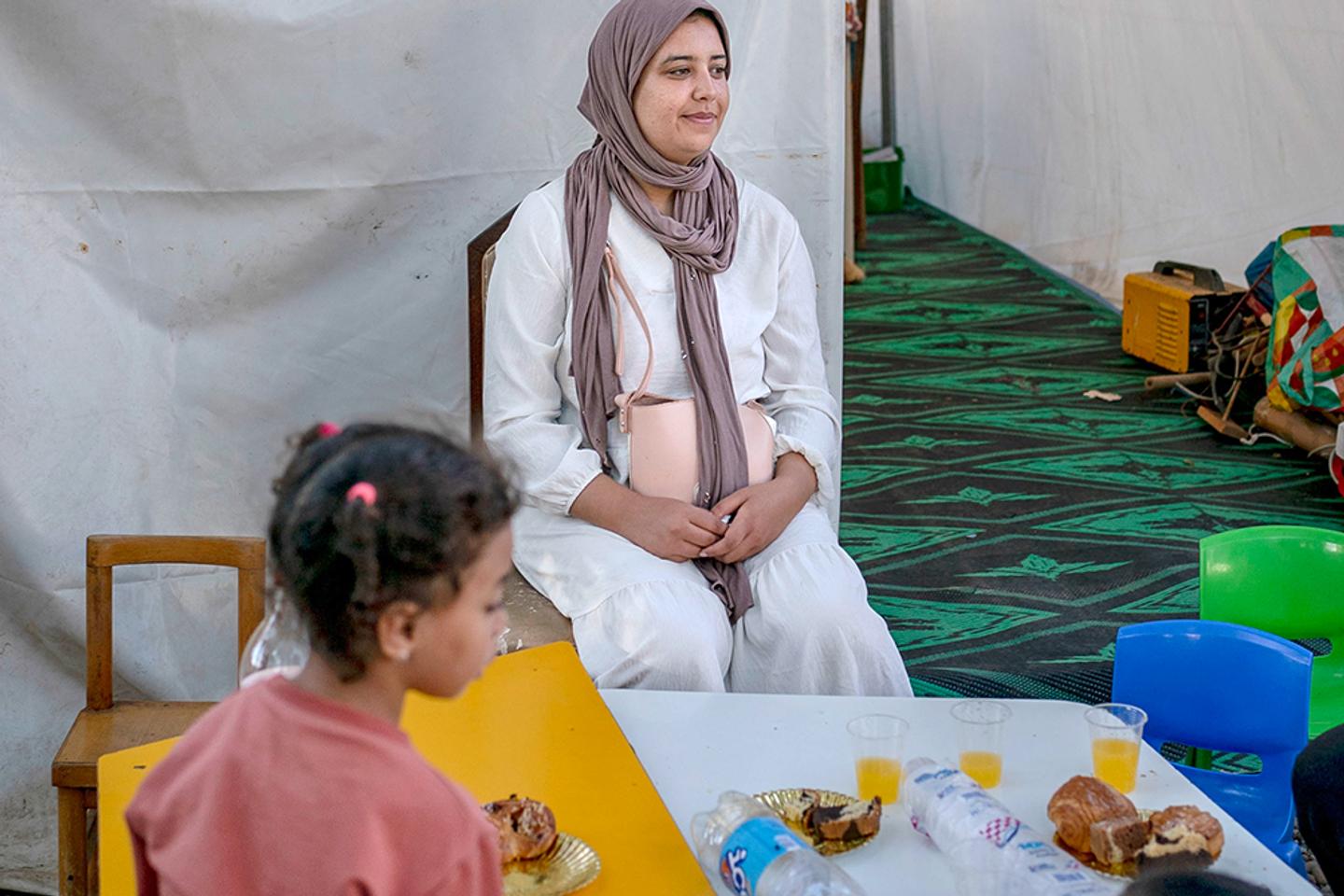Morocco's earthquake survivors face the fear of sex crimes
In the High Atlas, communities and local associations are organizing themselves to protect the most vulnerable victims of the natural disaster from child predators, kidnappers and forced marriages. In Morocco, many domestic workers are underpaid, deprived of rights and sometimes abused or raped after the September 8-9 earthquake. The story spread like wildfire, leading to a deep-seated fear of kidnappings and forced marriages. On social media, members of wealthy urban communities offered survivors the chance to come and act as their servants, "as they have lost everything". In the aftermath of the earthquake, local initiatives have sprung up, such as setting up a special telephone hotline to report cases of violence. Women face a "risk of gender-based violence" and may be afraid to access essential services for safety reasons.

Opublikowany : 2 lata temu za pomocą Cerise Sudry-Le Dû avec Souha Ataha w Weather
The little girl looked barely 10 years old. The man in his forties, who called himself a "volunteer" in the earthquake-hit villages, posted an image on Instagram and wrote: "She doesn't want to come with me to Casablanca. But she promised we'd get married when she's older." In a matter of days, the story spread like wildfire in this High Atlas region hit hard on the night of September 8-9, reigniting a deep-seated fear of kidnappings and forced marriages.
In the days that followed, another man was arrested after boasting that he would travel to the disaster areas to commit sex crimes. On social media, other messages posted by members of wealthy urban communities offered survivors the chance to come and act as their servants, "as they have lost everything." The offer is not insignificant: In Morocco, many domestic workers are underpaid, deprived of rights and sometimes abused or raped.
In these poor, remote villages, women and children sometimes find themselves on the side of the road, exposed to the incessant passing of construction trucks, NGOs or spontaneous volunteers. And it's not easy to tell the difference between a good Samaritan and a malicious one. In the field, aid workers prefer not to talk too much about kidnapping.
It has to be said that much of the awareness-raising work has been done on the internet, via numerous influencers. "We've received around 10 reports of this kind of behavior," said Ghizlane Mamouni, lawyer and president of the Kif Mama Kif Baba association, which is at the forefront of the defense of children's and women's rights in the country. She said: "We have systematically lodged complaints." Her association has also brought together 21 other local players to set up a special telephone hotline to report cases of violence.
The associations have also published a manifesto summarizing what to do. In the aftermath of the earthquake, women face a "risk of gender-based violence, including sexual harassment and assault" and "may be afraid to access essential services for safety reasons." Lalla Hakima Drissi, from the NGO Global Diversity Foundation, confirmed this: "One of the most urgent needs is toilets. At the moment, it's very difficult to access them, so many women wait until nightfall, to get away from the camp and out of sight of the men." But they are all the more vulnerable in this situation because they find themselves alone.
Many local initiatives, often spontaneous, have sprung up. In Ouirgane, after an hour and a half of winding roads from Marrakech, you have to show your credentials to enter the ramshackle camp set up in the alleys of what used to be a field of peach and olive trees. Sitting in front of the "kitchen" – a large tent in which worktops have been made from planks found in the rubble – Toufik Saidi, 42, said: "We check in and out so as not to let anyone unknown into the camp."
You have 39.69% of this article left to read. The rest is for subscribers only.
Tematy: Earthquakes
